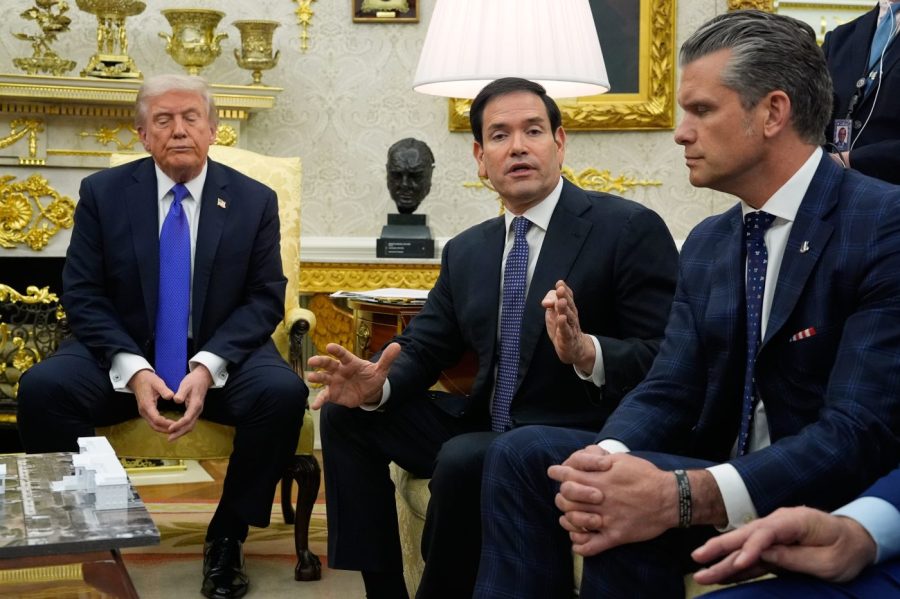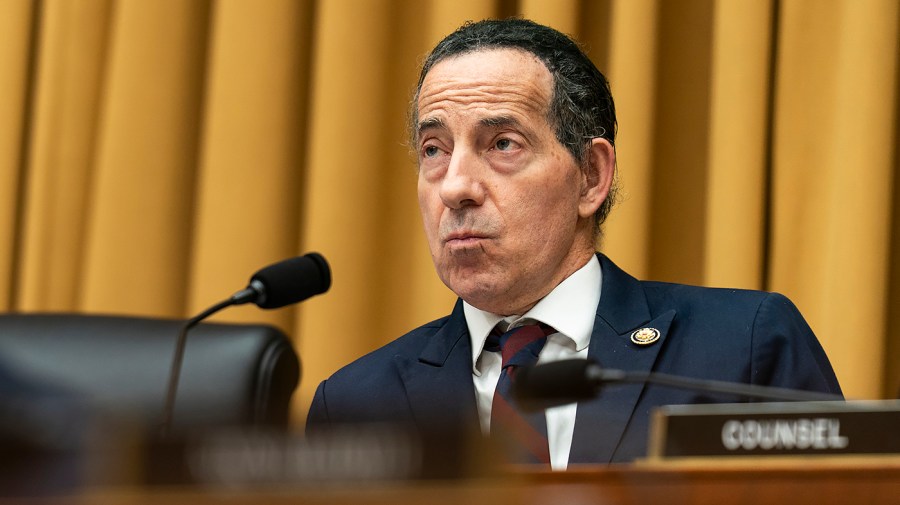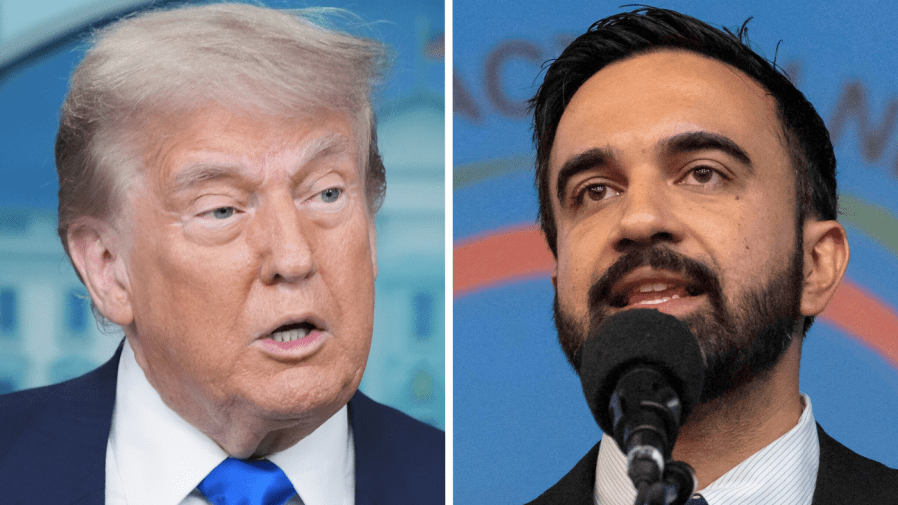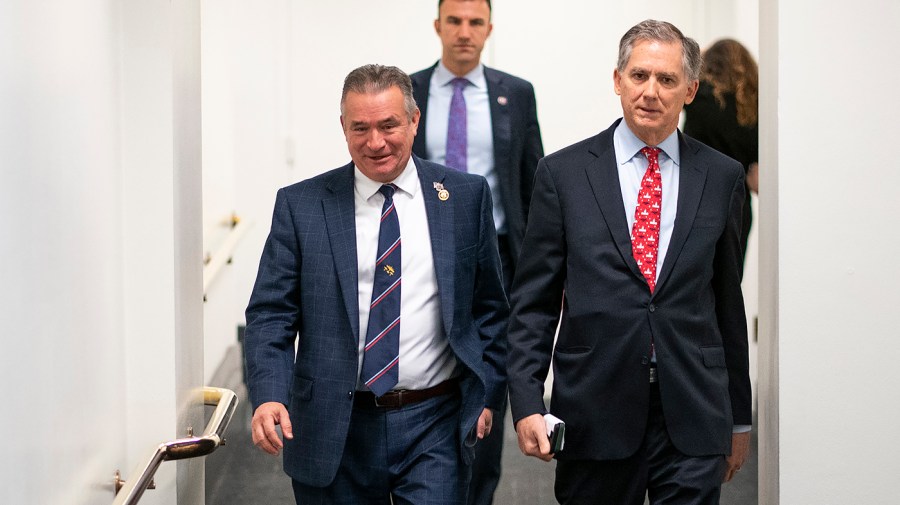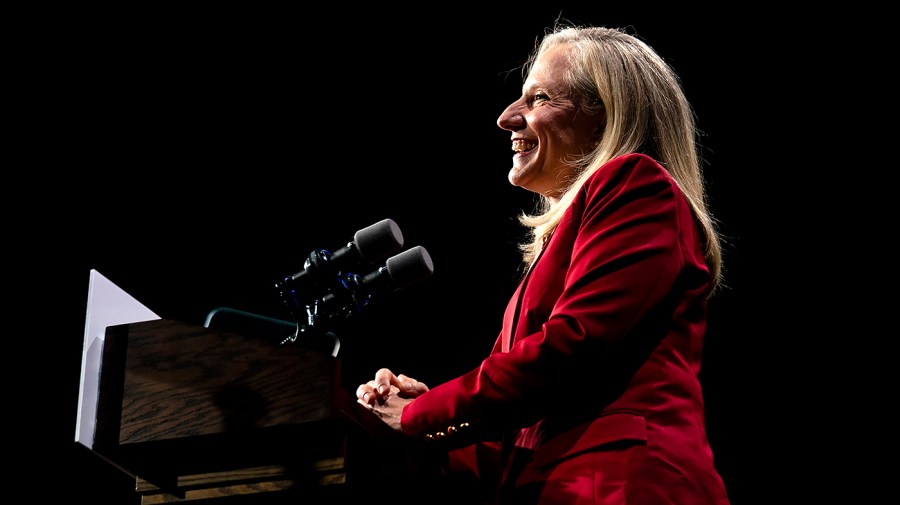The latest briefing on the U.S. military’s strikes against alleged drug-trafficking boats in the Caribbean and Eastern Pacific, led by Secretary of State Marco Rubio and Defense Secretary Pete Hegseth, did not quell the concerns of some Democrats in attendance, who are demanding more information about the operations that have killed more than 60 people.
The Wednesday classified briefing in the Senate was attended by the “Gang of 12,” including Senate Majority Leader John Thune (R-S.D.) and Speaker Mike Johnson (R-La.), along with top lawmakers on Armed Services and Intelligence committees in both chambers. But it did not assuage concerns from Democrats who have been asking for additional documents and information about the strikes.
“What we heard isn’t enough. We need a lot more answers,” Senate Minority Leader Chuck Schumer (D-N.Y.) said after the briefing, adding that the entire Senate should receive one.
House Minority Leader Hakeem Jeffries (D-N.Y.) echoed his demand for more information at a press conference, but declined to elaborate when pressed on what details were left out.
Instead, he went after GOP leaders for keeping the House out of session during the government shutdown, which has precluded the possibility of a briefing for the entire Congress.
“We need a full congressional briefing. One of the reasons why we haven’t had one is because Mike Johnson and House Republicans have literally been on a taxpayer-funded vacation for the last six weeks,” Jeffries told reporters.
Sen. Jim Risch (R-Idaho), the chair of the Senate Foreign Relations Committee, said the administration has kept him and other members “fully advised” on the strikes, adding that he is “fully satisfied” with the actions of the White House.
“They’ve got good legal justification for what they’re doing. The president really ought to be congratulated for saving the lives of young American people. He should be thanked by the many parents who won’t even know that they won’t have to bury kids prematurely. They’re doing good work. They’re doing it lawfully, and I encourage them to keep it up,” Risch, who also sits on the Senate Select Committee on Intelligence, told reporters.
Anna Kelly, a White House spokesperson, told The Hill on Wednesday that the administration “will continue to be forthcoming with the Hill about the President’s efforts to take on the cartels and stop the illegal smuggling of drugs into our homeland, just as he promised on the campaign trail,” adding that today was the administration’s 13th bipartisan briefing since the strikes began.
Rubio, Hegseth and other officials who accompanied them stayed in the room for more than 20 minutes after the briefing concluded to answer every question, a senior administration official, speaking on condition of anonymity, told The Hill.
“There were no outstanding questions by the time the briefing was finished,” the official added.
There have been at least 16 strikes since the military campaign kicked off in early September, with a minimum of 66 people being killed. The latest strike took place on Tuesday, when the U.S. military struck an alleged drug-trafficking vessel in the Eastern Pacific, killing two “narco-terrorists,” according to Hegseth.
President Trump said on Wednesday that the number of illegal drugs coming into the U.S. is “way down” and the drop-off is particularly apparent regarding those trafficked at sea.
“People are saying, ‘No thanks, I don’t think I want to ride in that boat, please,’” the president said while in Florida.
The strikes have drawn blowback from Democrats and some Republicans.
Last week, lawmakers on the House Armed Services Committee received a classified briefing on the operations, but they came away unsatisfied with the answers, including the legal rationale the White House is relying on and the way the administration is determining who to target at sea.
Earlier this week, the White House said it does not need to ask for Congress’s authorization to continue the strikes since the operations do not rise to the level of “hostilities” that would require one, and that U.S. service members are not in harm’s way since the attacks are conducted “largely by unmanned aerial vehicles launched from naval vessels in international waters.”
Following the briefing on Wednesday, Rep. Gregory Meeks (N.Y.), the top Democrat on the House Foreign Affairs Committee, said he does not agree with the legal opinion the administration is citing to conduct the strikes and advocated for hearings to be held on the operations.
Sen. Mark Warner (D-Va.), the ranking member on the Senate Select Committee on Intelligence, argued the administration should publicly present evidence that the boats are loaded with drugs and are operated by “bad guys.”
“The notion of kinetic strikes without actually interdicting and demonstrating to the American public that these are carrying drugs and [are] full of bad guys, I think, is a huge mistake and undermines the confidence in the administration’s actions,” Warner told reporters.
Warner said the legal opinion has been reviewed by the entire Senate and that it does not mention Venezuela. The White House has turned up the pressure against Venezuelan President Nicolás Maduro, whom administration officials have characterized as an “illegitimate leader.”
Trump signaled during an interview with CBS’s “60 Minutes” that Maduro’s days are numbered and that the Pentagon has amassed a substantial military presence in the U.S. Southern Command region, dispatching warships, fighter jets, spy planes and at least one submarine.
Warner said the previous administration did not go far enough in opposing Maduro, who was reelected as president last year despite allegations of electoral fraud.
“I frankly think the Biden administration didn’t go far enough after the Venezuelan people voted overwhelmingly to get rid of him,” he said.
Rep. Jim Himes (D-Conn.), the top Democrat on the House Permanent Select Committee on Intelligence, said he still has questions about the “precise structure,” but added that lawmakers received a general explanation of the process of how the targets are selected.
“What happens when there’s somebody nearby who may be innocent? These are the things that the DOD is used to thinking about, and we still haven’t gotten into that level of granularity. So again, I’m not too worried that they’re going to take out a fishing boat, because our intelligence community is very, very good, but I’m not confident that we know precisely who are in those boats and why they’re there,” Himes told reporters after the briefing. “Are they U.S. persons, etc. So that’s a level of fidelity we have.”
When asked if officials indicated during the briefing that the strikes will continue, Himes said they “surely didn’t tell us that they were going to stop.”










